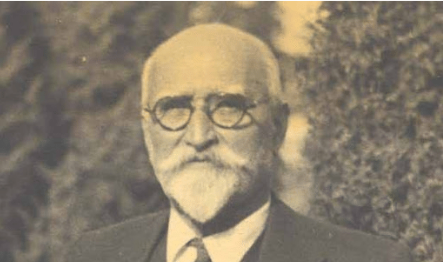India returned from the Tokyo Olympics 2020 with its biggest haul of medals with a radiant gold medal coming home, 13 years after Abhinav Bindra last won it at the Beijing Olympics. Winning a gold medal at the Olympics ‘was’ and ‘is’ the pinnacle of the sporting world, and the story of every Olympic medallist should be told loudly. While the athletes put in their heart, soul and body for the medal, there’s an intriguing story behind India’s first-ever gold medal in 1928. A story that would have remained incomplete if it wasn’t for the contribution of Dorabji Tata — son of Jamsetji Tata and the second chairman of the Tata Group.
Whilst being invited as the Chief Guest at the Annual Sports Meet of the Deccan Gymkhana in Pune in 1919, Dorabji Tata, a sports enthusiast himself, was surprised by the ability of barefoot Indian athletes running and clocking timings that would have given a stiff competition to the European competitors.
According to a Hindu Business line report, filled with a desire to see an Indian team participate in the Olympics but with no federation, association or sports team, Dorabji incessantly urged, Sir Lloyd George, the then Governor of Mumbai to grant to obtain affiliation for India with the International Olympic body.
After a while, Dorabji decided to personally finance the first Indian team to the Antwerp Olympics in 1920. Since there was no official body, he also helped establish a committee to select the team. That’s how India sent its first team to the Olympics.
It was a six-member all-male team, comprising four athletes, PF Chaugule, A Dattar, K Kaikadi and Purma Banerjee, and two wrestlers — G Navale and N Shinde. Purma Banerjee from Bengal, who ran the 400-metre race, was the proud flagbearer who led the Indian team into the stadium.
Sir Dorabji later wrote, in a personal letter addressed to Count Baillet-Latour, the President of the International Olympics Committee, “I, therefore, offered to arrange for the sending of three of the best runners to Antwerp to run the Olympic Marathon at the next meeting, when I hoped that with proper training and food under English trainers and coaches, they might do credit to India. This proposal fired the ambition of the nationalist element in the city, to try and send a complete Olympic team.”
While India returned empty-handed, Dorabji had planted the Indian flag in the Olympics, and since then, the country has not missed attending a single summer Olympics event.
Four years later, Sir Dorabji once again bore some of the expenses of the Indian team for the 1924 Paris Olympics. Dorabji’s sincere efforts finally paid dividends as the Indian Olympics Association (IOA) was finally formed in 1927, with him as the first President of the organisation.
The IOA selected India’s team to the 1928 Amsterdam Olympics. This time, the contingent also included a men’s hockey team, championed by the Indian Hockey Federation. Not many would have predicted, but this Hockey team selected under the scrutiny of Dorabji became a legend of the sporting history of India and the World.
The team won its first gold medal beating Netherlands 3-0, with Major Dhyan Chand scoring 14 trailblazing goals in the entirety of the tournament to cement his name in the history books. The team then went on to win six consecutive golds from 1928 to 1956 and added two more later. After the bronze at the Tokyo Olympics, India is once again on the most illustrated side in the Olympics history with 12 medals.
Read More: Tokyo Olympics 2020: India becomes a hockey powerhouse once again
The golden era of Olympic domination by the Indians would not have been made possible without the contributions of Sir Dorabji Tata. Thus, when we have won a gold medal after such a long, arduous wait, it seems fitting that he is remembered for his almighty contributions.
